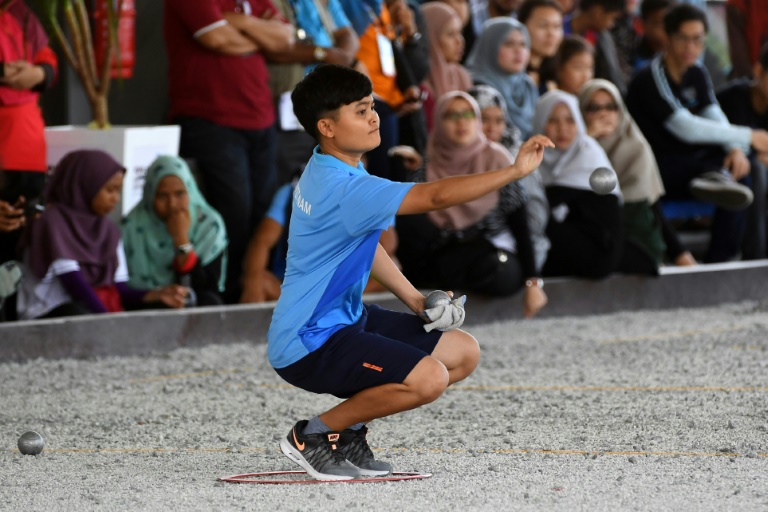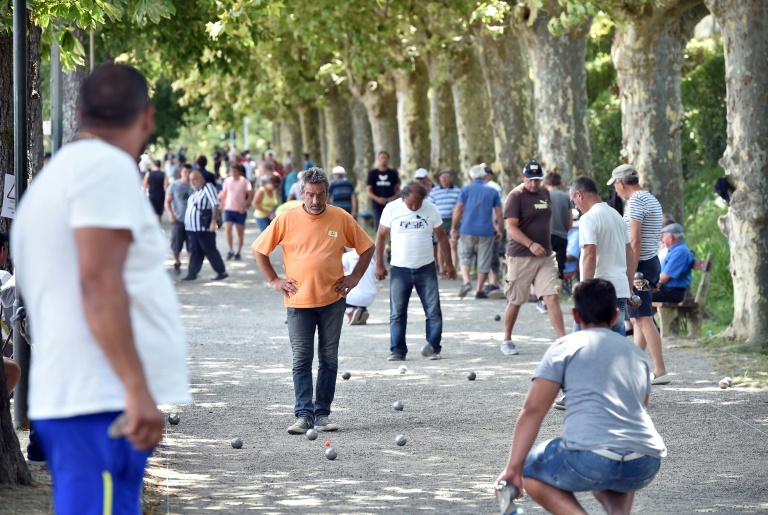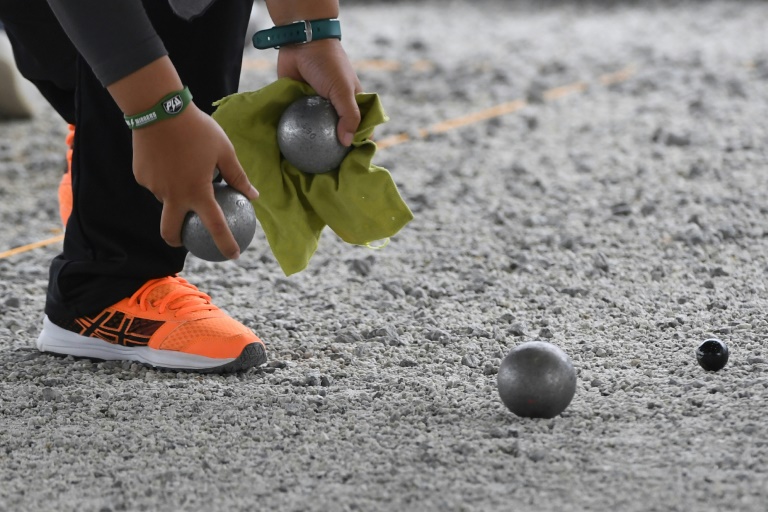She doesn't seem like a superstar, but the shy Thai woman in the dark glasses says she can hardly travel in Europe without being stopped for pictures and autographs.

That’s because she’s Thongsri Thanakord, multiple world champion and a living legend in the French game of petanque, which is quietly thriving in Asia –- and even eyeing a spot at the Olympics.
At the Southeast Asian Games in Malaysia, it’s standing room only at Kuala Lumpur’s purpose-built petanque arena as hundreds of fans gather, shouting football-style chants.
Malaysia’s women are in sight of the triples gold medal when in a sudden turnaround, the Laos team grab six points in one round to clinch victory, leaping into each other’s arms in delight.
Thongsri, standing nearby, has lost count of how many SEA Games gold medals she’s won. “About 15,” the 51-year-old says, adding that she has six women’s team world titles and one in the category called ‘shooting’.
In a long and distinguished career, the Thai naval officer has come to be regarded as the best women’s petanque player in history, making her well known in Europe, the sport’s heartland.
Petanque, where players compete to throw steel balls closest to a smaller ball, or jack, is a common sight in the parks and beaches of France, which bequeathed it to its former colonies such as Cambodia, Vietnam and Laos.
– ‘Practise, practise, practise’ –
In Thailand, petanque caught on after the mother of the late King Bhumibol Adulyadej picked it up in Switzerland. Thongsri says Thai families play wherever they can find space, including the grounds of Buddhist temples.
“There are a lot of families who play together, the whole family. And they can play in the temple.”

Vietnam’s Ngo Thi Huyen Tran competes at the SEA Games, with standing room only at Kuala Lumpur’s purpose-built petanque arena
Thongsri, whose nickname is ‘Nok’, meaning Bird, started playing about 30 years ago, when she was recovering from a parachuting accident. She now practises for about two hours a day, going up to six when she’s preparing for competition.
“You need discipline to practise every day. You have to know what is your duty. But the most important thing is you have to practise, practise and practise,” she says.
Fitness sessions start at 6am, and Thongsri is one of many Asian petanque players who meditate to hone their focus. Yoga is another popular training method for petanque, where games can last two hours and in competition, players may have to keep going for up to 10 hours a day.
“You need to stay very healthy, very well in your mind and very strong in your body for endurance,” says Thongsri.

Petanque, where players compete to throw steel balls closest to a smaller ball, or jack, is a common sight in the parks and beaches of France, which bequeathed it to its former colonies such as Cambodia, Vietnam and Laos
It’s this kind of dedication that has taken Southeast Asia to the top in petanque, fuelling hopes of further expansion and perhaps a spot at the 2024 Olympics, which are expected to be held in Paris.
“For some time, Asia’s been at the highest level, especially for the women. The best women’s teams are here in Asia,” says Claude Azema, president of the World Confederation of Boules Sports.
“For me it’s (Asia) the best place to promote petanque. They think about petanque like it’s a real sport,” he adds. “The sport here is much more highly thought of than in some countries in Europe.”
– Spectator sport –
Petanque and the other boules sports –- boules, Lyonnaise and raffa — launched their bid for Olympic inclusion in 2015, and Azema has held talks with International Olympic Committee president Thomas Bach to present his case.
Petanque, he says, is cheap to organise, easy to play and understand, and inclusive of all ages, cultures and genders. Importantly for the increasingly youth-focused IOC, it has a strong youth following, Azema stresses, despite its image as a game for older people.

One problem with petanque’s Olympic bid is its value as a spectator sport, especially when all competitors use the same, metal-coloured balls, making it hard to tell which ball belongs to each team
One problem, however, is its value as a spectator sport, especially when all competitors use the same, metal-coloured balls, making it hard to tell which ball belongs to each team.
The federation is experimenting with special graphics on TV to highlight each team’s balls, and also with injecting them with epoxy resin of different colours. Paint, Azema says, just scrapes off in the gravel.
If that problem is solved, and petanque does muscle its way into the 2024 Olympics, Thongsri is determined to be there — even though she’ll be in her late fifties.
“I’ve been dreaming about petanque being in the Olympics for a long, long time,” she says.
“If it’s in the Paris Olympics in 2024 I’ll be nearly 60. Maybe I’ll be a 60-year-old Olympic gold medallist!”
Support Local Journalism
Add The Citizen as a Preferred Source on Google and follow us on Google News to see more of our trusted reporting in Google News and Top Stories.






